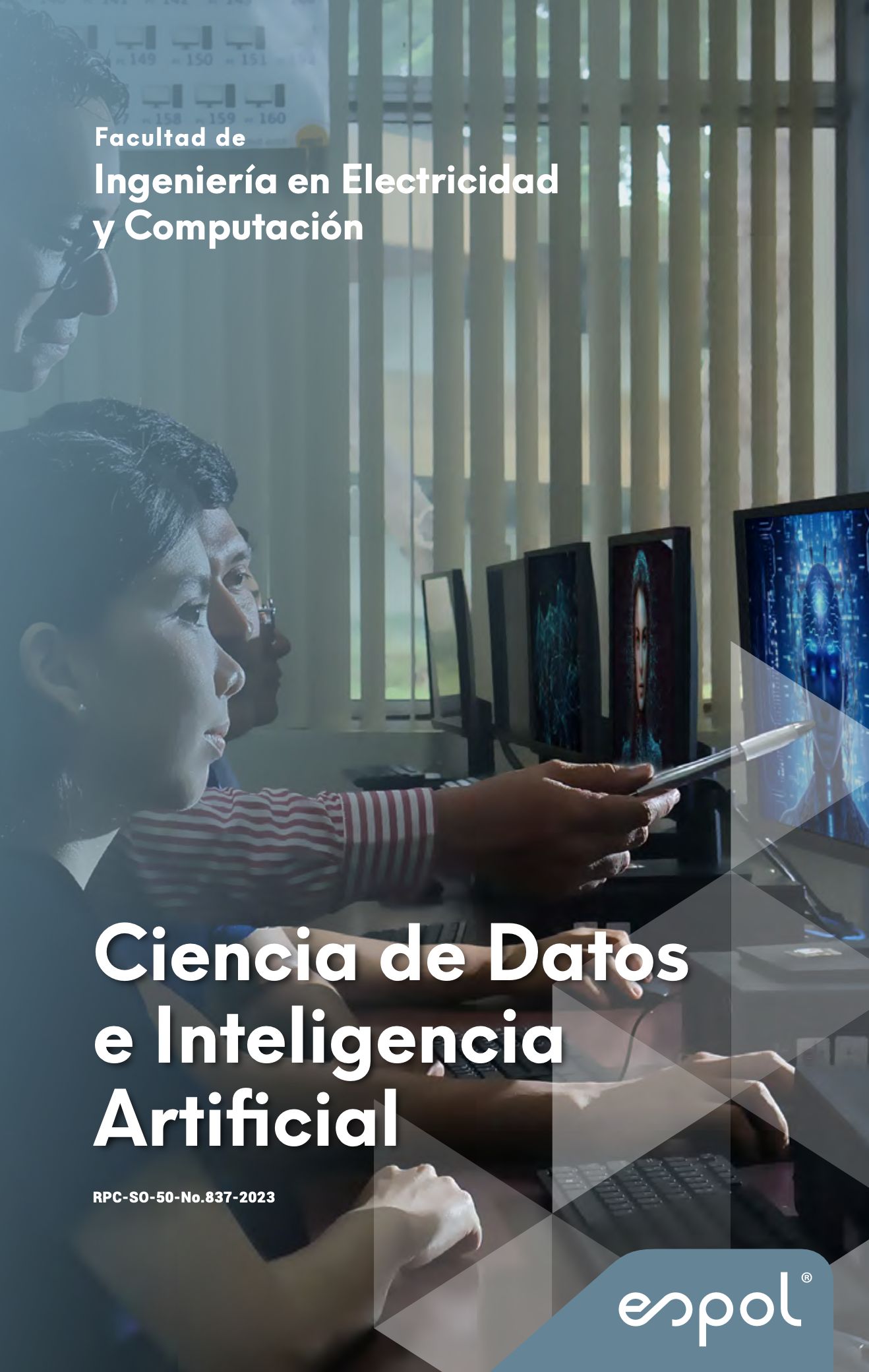
The Data Science and Artificial Intelligence program trains professionals who actively participate in multidisciplinary teams to design and implement data-driven and artificial intelligence-based solutions that address the needs of diverse groups in our society.
Mission
To prepare professionals in the data science and artificial intelligence areas through a comprehensive and competitive training enhance their skills on analysis, design, implementation, research, and innovation of data-based technological solutions that contribute to improving life quality and that promote the sustainable and equitable development of our country and region, by considering social, economic, and environmental aspects within the professional ethical framework.
Core Components of the Program
The Data Science and Artificial Intelligence program includes a comprehensive set of knowledge, skills, and methods that graduates must acquire upon completing the overall training program. The Association for Computing Machinery (ACM) has defined a set of knowledge areas that are linked to the program’s courses to develop the skills that a graduate of our program should possess.
- Data analysis and presentation.
- Artificial intelligence.
- Big data systems.
- Data acquisition, management, and governance.
- Data mining.
- Machine learning.
International Accreditation
Not yet available.
Study Modality
- The entire program can be conducted online.
- Assessments will be both virtual and in-person.
* Undergraduate tuition/fees:
The Constitution of the Republic of Ecuador in its Article 356, among other principles, establishes that third-level public higher education will be tuition/fees free. Zero cost education is linked to the academic responsibility of the students.
Graphs show the figures in real time, at the time of the query
High school graduates who apply for the Data Science and Artificial Intelligence program must be curious, imaginative, creative, and innovative students who possess the following:
- Basic computer science skills.
- Numerical aptitude and basic knowledge of mathematics.
- Ability to abstract, analyze, synthesize, and apply logical reasoning.
- Willingness to work as a team.
- Reading comprehension in English.
- Strong perception and attention skills.
EDUCATIONAL OBJECTIVES
The Data Science and Artificial Intelligence Engineering alumni from the Escuela Superior Politécnica del Litoral will have in the 3-5 years period the following professional practices:
- Solve professional challenges at a global level by applying the fundamentals of their profession and innovation and by considering social, economic, and environmental aspects, while adhering to ethical and moral principles.
- Successfully propose and lead the development and implementation of solutions related to their discipline and contributing valuable solutions to various segments of society.
- Acquire and enhance technical and scientific skills and knowledge throughout their professional lives, drawing on contemporary aspects of research and entrepreneurship.
- Contribute to improved productivity through data-driven solutions.
- Apply communication and writing tools in Spanish and English.
STUDENT OUTCOMES
SO 1. Analyze a complex computing problem and apply principles of computing and other relevant disciplines to identify solutions
SO 2. Design, implement, and evaluate a computing-based solution to meet a given set of computing requirements in the context of the program’s discipline.
SO 3a. Communicate effectively in Spanish in a variety of professional contexts.
SO 3b. Communicate effectively in English in a variety of professional contexts.
SO 4. Recognize professional responsibilities and make informed judgments in computing practice based on legal and ethical principles.
SO 5. Function effectively as a member or leader of a team engaged in activities appropriate to the program’s discipline.
SO 6. Apply theory, techniques and software throughout the data science lifecycle and employ the resulting knowledge to meet the needs of those involved.
Professional Skills and Occupational Profile:
The Data Science and Artificial Intelligence Engineer will be able to design, implement, and manage data-driven technological solutions. The professional will have the following skills:
- Entrepreneur.
- Manager of a company that provides data-driven solutions.
- Director of data-driven projects.
- Advisor and consultant for the development of data-driven systems and projects.
- Data-driven systems auditor.
- Graduate student.
To obtain the Data Science and Artificial Intelligence Engineering degree, the following requirements must be met:
- Complete at least 61 credits in Professional Training and Elective Courses.
- Complete at least 23 credits in General and Complementary Education.
- Complete at least 21 credits in Math and Basic Sciences.
- Complete a minimum of 336 hours of pre-professional internships, included into 96 hours of community service internships and 240 hours of pre-professional business internships, which amounts to 7 credits.
- Successfully complete the graduation process, equivalent to 8 credits.
The Capstone Project is a culminating requirement for graduation. These projects provide students with the experience of applying acquired knowledge and skills to the needs of society, with a focus on sustainability.
The IDEAR Fair showcases all Capstone projects, offering students a valuable opportunity to showcase their work and hone soft skills such as communication and teamwork. It is also a space for students to network with potential clients and future employers.
Explore all of the Capstone projects completed by the Data Science and Artificial Intelligence Engineering program.
